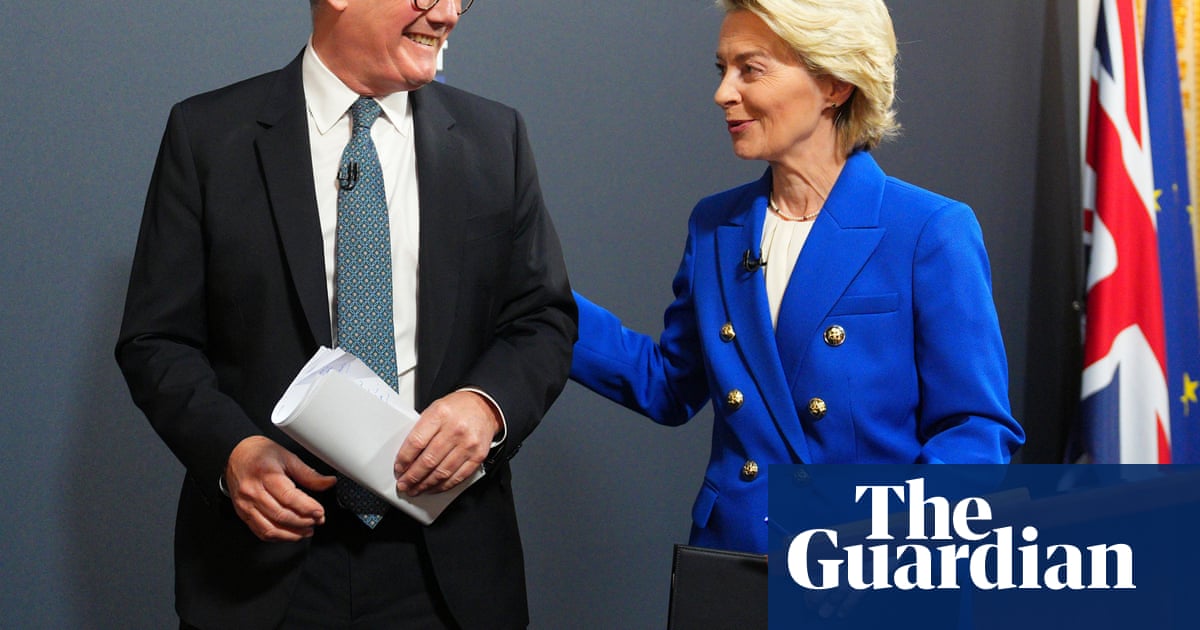For a footballer who went through an entire career without receiving a yellow card, it may seem like an unlikely end.
On Sunday night, Gary Lineker will be dispatched from the BBC’s studios, having acknowledged making a serious error of judgment – and one that BBC insiders said had left his position untenable.
While this weekend was always going to be Lineker’s last Match of the Day outing, he had been due to front the corporation’s FA Cup and World Cup coverage next year. But Sunday’s appearance will now bring an abrupt end to a relationship stretching back 30 years.
The reason for his premature departure is unambiguous. Last Tuesday, he reposted a pro-Palestine video on Instagram that included a rat emoji – symbolism used against Jewish people in Nazi Germany – causing immediate anger within the corporation. With 1.2m followers, his Instagram account has significant reach.
Lineker first acknowledged a major error by deleting the post. The BBC’s director general Tim Davie, who happened to be giving a speech on the day of the post, made his disapproval clear. Lineker apologised the following day. Yet some critics were already questioning why his apology had taken hours to arrive – and believed the BBC should have fired him on the spot. While Lineker fronted Saturday’s FA Cup final coverage for the BBC, all sides agreed it was time to part ways.
Yesterday, the 64-year-old pundit said he did not see the emoji, but acknowledged it has “awful connotations”.
Lineker’s social media posts have repeatedly led to criticisms of the BBC. Previously, the fallout usually involved difficult exchanges between the corporation and its highest paid on-air presenter. He had been known to push back and argue the corporation needed to be more prepared to stand up for itself.
But that dynamic has not been repeated in exchanges over the last week. There was swift agreement that an apology was needed and that the time had come for the BBC and its star presenter to part ways. It is understood there was no row over the outcome.
Lineker’s appearance on Match of the Day this weekend will be his last duty for the corporation, though even that has been criticised by some as allowing the presenter to leave on his own terms. To others, it is a compromise acknowledging the decades Lineker has spent fronting the BBC’s sports coverage.
His departure comes after years of accumulated baggage between the BBC and its star. He had already agreed a deal last year that would see him step down from Match of the Day, but continue to front next season’s FA Cup and the 2026 World Cup.
That came after a skirmish in 2023, in which he compared the then Conservative government’s rhetoric around immigration to that used in Germany in the 1930s. His suspension led to colleagues walking out in solidarity and a Match of the Day without any commentary or analysis. It also saw the BBC shore up its impartiality guidelines for presenters.
By then, he had already touched on other controversial issues on social media, including overseas political donations and sewage. More recently, he was among 500 film, TV and other media professionals calling on the BBC to reinstate its documentary on children and young people living in Gaza. It was removed from the BBC’s iPlayer after it emerged that the film’s 14-year-old narrator was the son of a deputy agriculture minister in the territory’s Hamas-run government.
An interview with Lineker last week, conducted before his offending social media post but published after its appearance, warned BBC bosses there could easily be more controversial moments to navigate between now and the next World Cup. “You either have empathy or you don’t,” Lineker said. “I’ll definitely continue pushing humanitarian issues.”
On top of that, his whole relationship with the BBC had become a running saga. The BBC “wanted me to leave”, he told the BBC’s Amol Rajan last month. He also recently ridiculed BBC figures for suggesting that he could pivot to a cookery show.
Hovering above the clashes has been a sense that even on the more mundane issues of BBC management, Lineker had ceased to respect the chain of command. In particular, eyebrows were raised inside the BBC at comments he made about the plans for Match of the Day – and apparent criticisms of Alex Kay-Jelski, the BBC’s director of sport.
Given that football highlights are now widely shared on social media long before Saturday night, Kay-Jelski is said to be among those trying to find other ways to keep the BBC’s coverage relevant.
“He has his reasons, he wants to change Match of the Day a bit,” Lineker told the Telegraph. “Ultimately, I don’t think they will, because I don’t see how you move a highlights show away from being about highlights. I think he wants more journalists – he has come from that background. He has got no television experience.”
His departure will mark an extraordinary career arc that has seen him almost personify the changing face of the media world. He started out as a quiet former footballer using voice coaching to help his move into presenting, but leaves as not only one of the BBC’s biggest names, but also as a media executive in his own right – overseeing the Goalhanger Productions podcast business disrupting the traditional broadcasters.
His own podcast, The Rest is Football, has seen the likes of Lineker and Alan Shearer take a more irreverent and opinionated approach to the game. Such platforms have contributed to the pressures that have led BBC bosses to push for changes to Match of the Day when he leaves.

.png) 5 hours ago
1
5 hours ago
1

















































